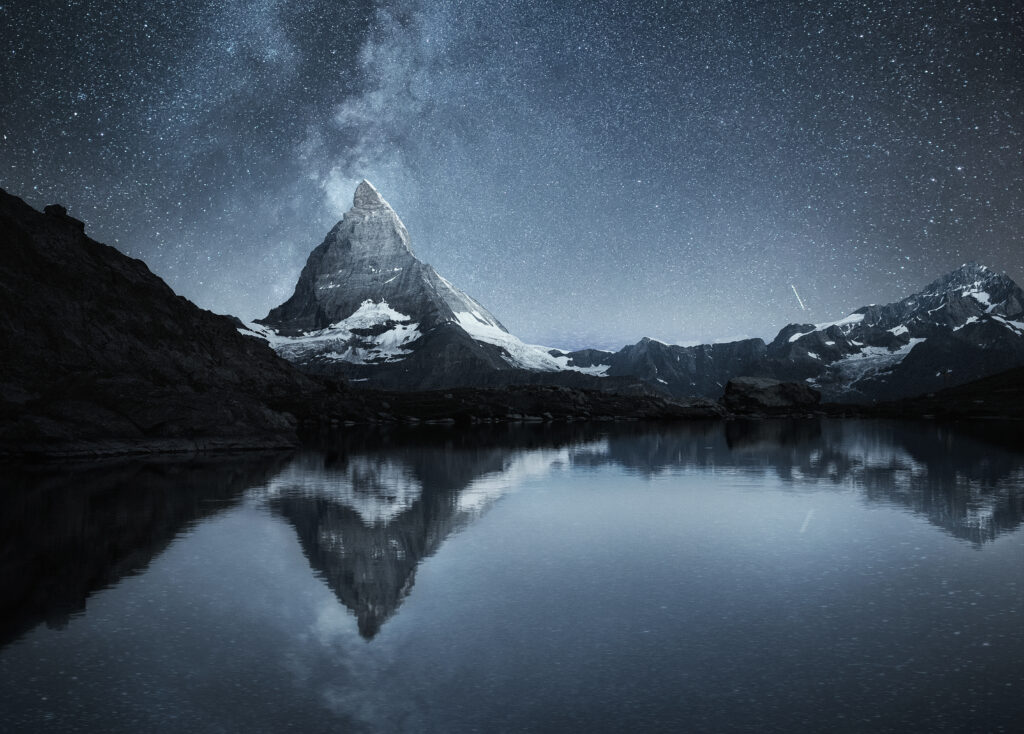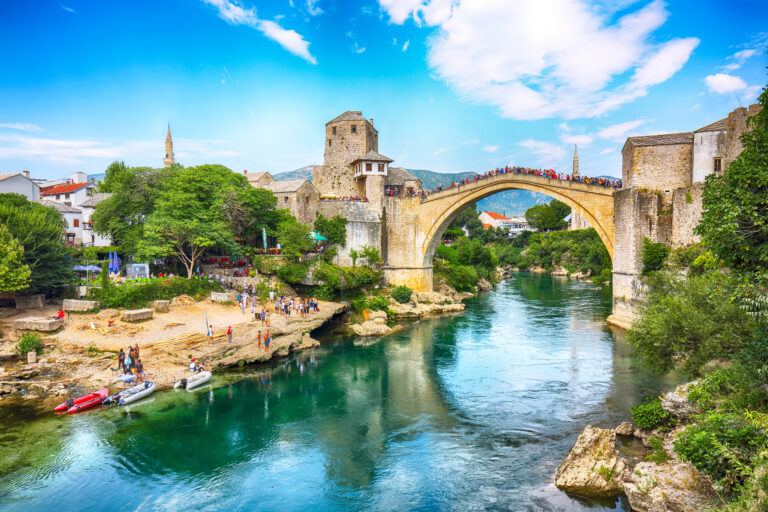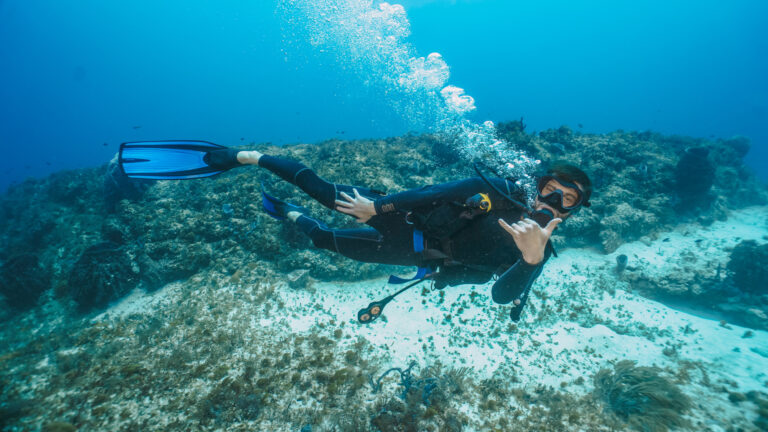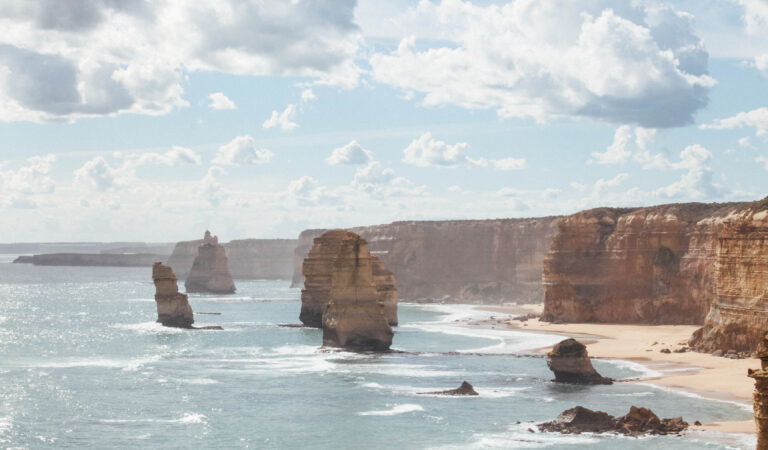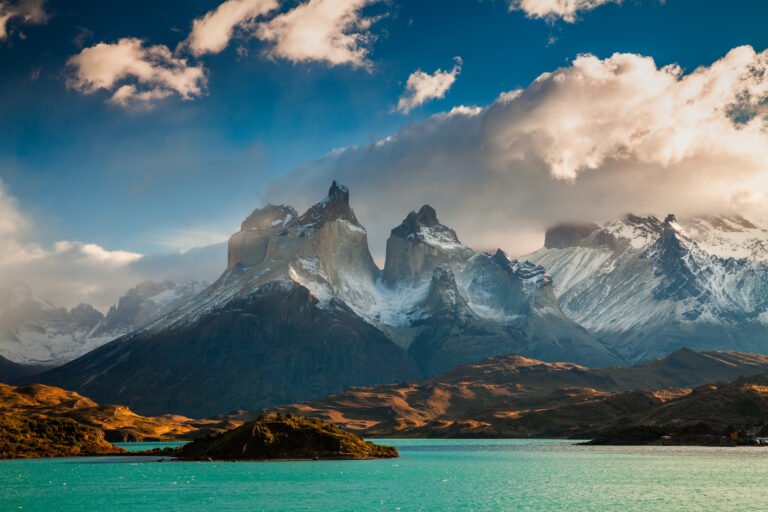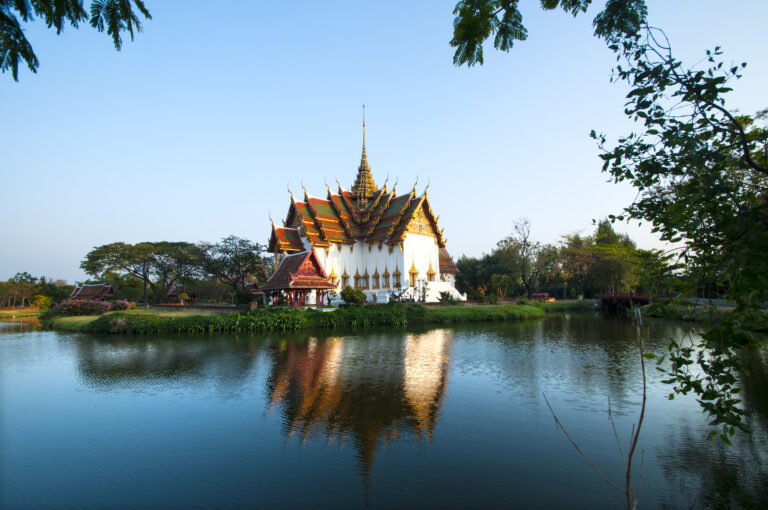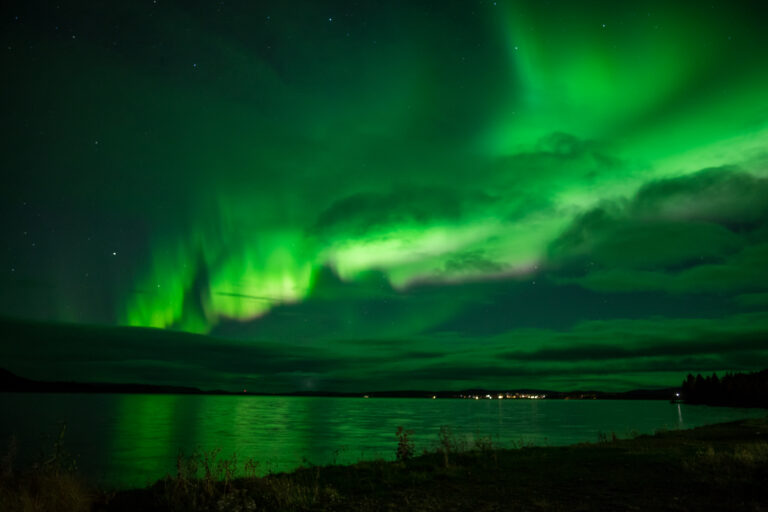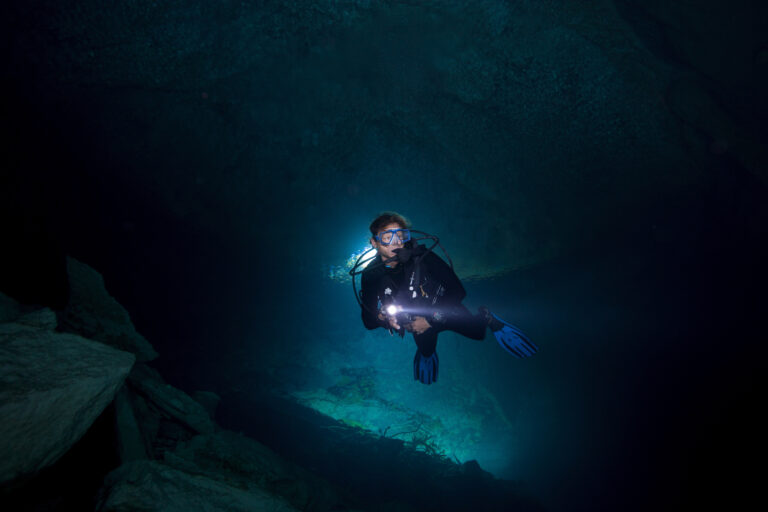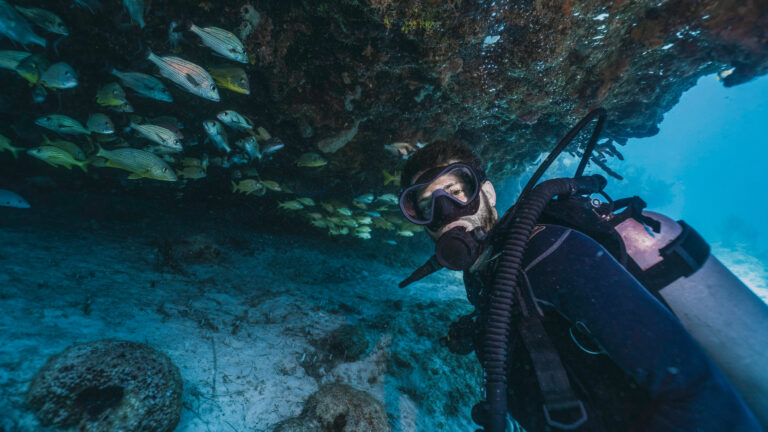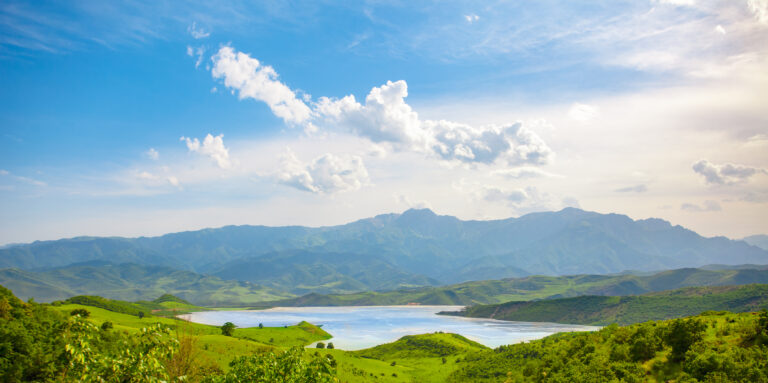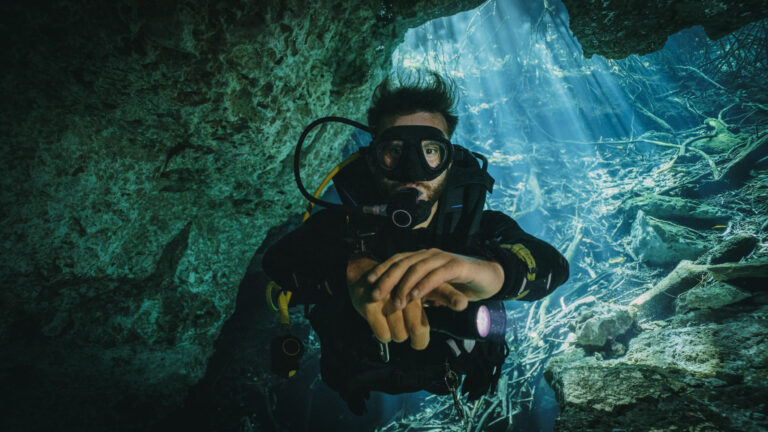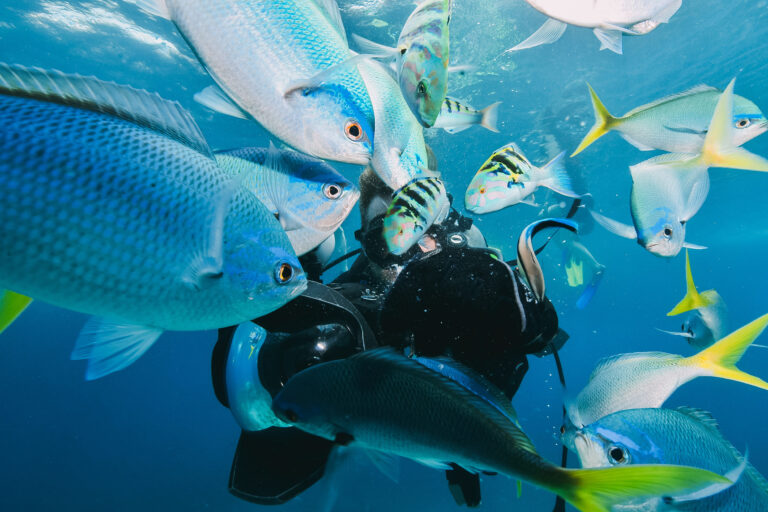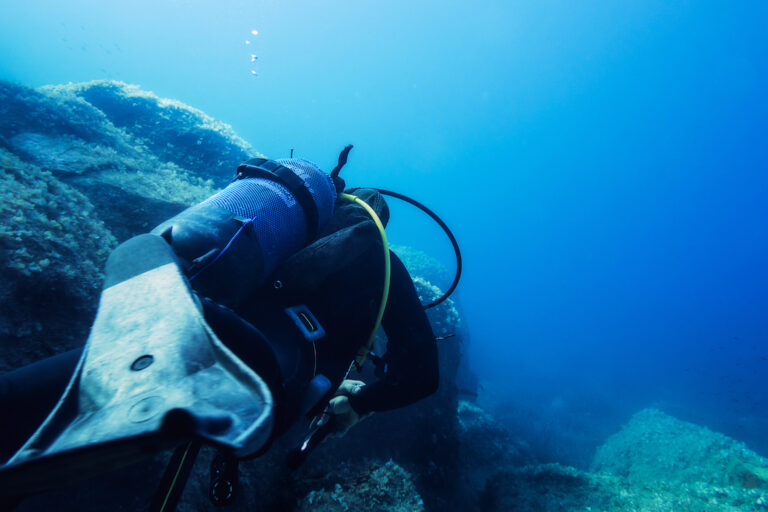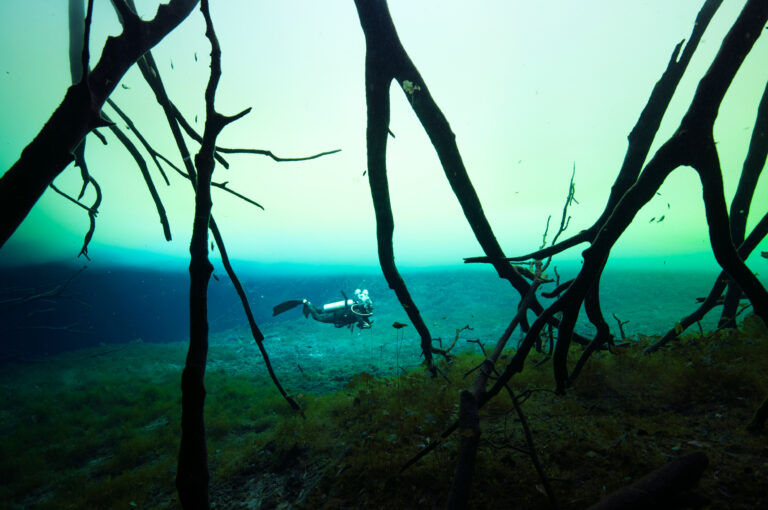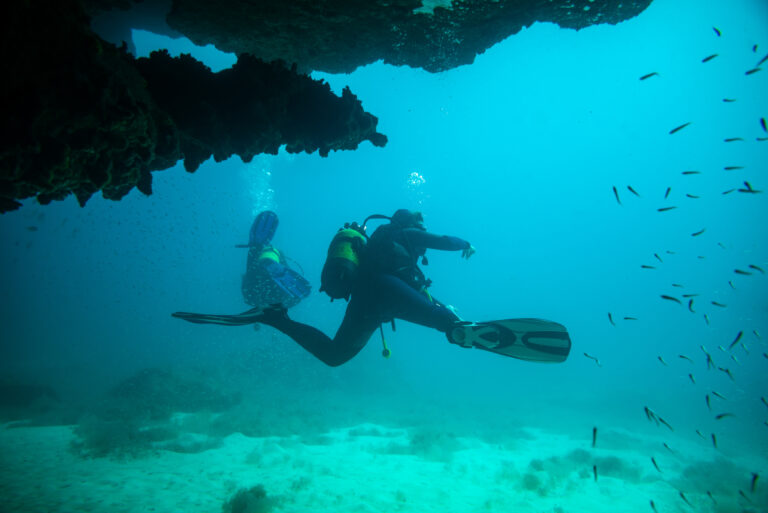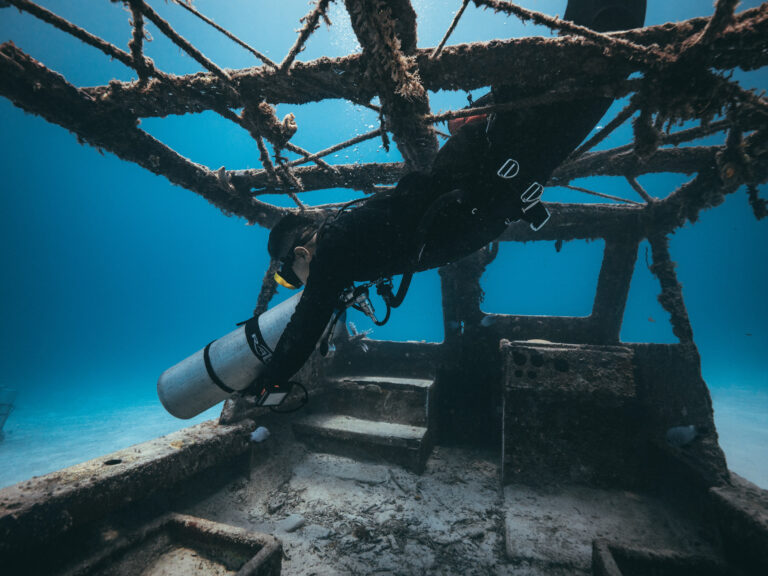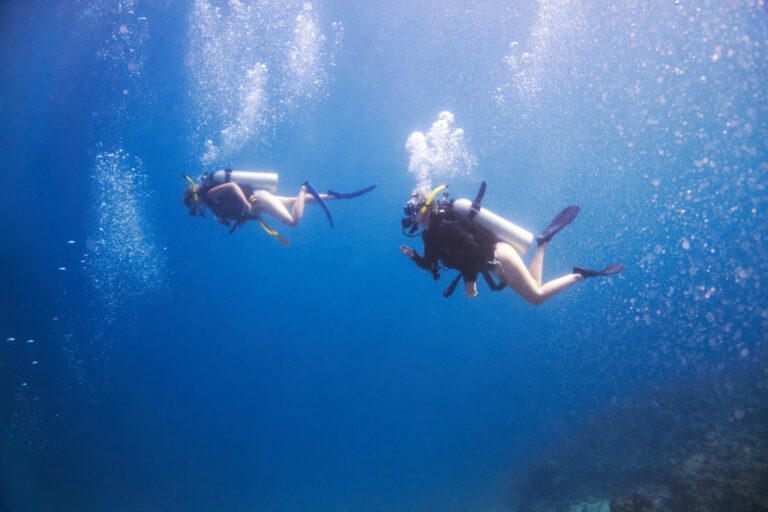SCUBA DIVERS’ TRAVEL GUIDE TO Switzerland
Switzerland may not be the first destination that comes to mind when you think of scuba diving, but this landlocked country has some hidden gems for divers who are looking for something different. Imagine diving in crystal clear alpine lakes and rivers, surrounded by majestic mountains and lush greenery. Switzerland offers a variety of freshwater diving experiences, from exploring steep walls and wrecks in Lake Geneva and Lake Zurich, to drifting along the stunning Verzasca river with its smooth rocks and colorful fish. Whether you are a beginner or an advanced diver, you will find something to suit your taste and skill level in Switzerland. Diving in Switzerland is a year-round activity, but you will need proper thermal protection to enjoy the chilly waters, especially in winter. If you are ready for an adventure, pack your dry suit and head to Switzerland for some unforgettable scuba diving!
LOCATION AND GEOGRAPHY
Switzerland, a landlocked country nestled in the heart of Europe, is renowned for its picturesque landscapes dominated by the majestic Alps and serene lakes. While it may not be the first destination that comes to mind for scuba diving, Switzerland offers a unique underwater experience in its crystal-clear freshwater lakes. The most prominent of these, Lake Geneva, Lake Zurich, and Lake Lucerne, are fringed by charming towns and dramatic mountain backdrops, providing not only scenic views but also a range of dive sites. Divers can explore submerged rock formations, steep drop-offs, and even sunken artifacts in these glacial lakes. The visibility in Swiss lakes can be astonishing, often exceeding 20 meters, making it an unexpected paradise for those willing to don a thicker wetsuit to brave the cooler temperatures. With its distinctive topography, Switzerland presents a scuba diving adventure that beautifully contrasts the typical tropical reef dives, offering a chance to discover the hidden underwater treasures of the Alpine region.
VISA AND ENTRY REQUIREMENTS
Switzerland, known for its stunning alpine landscapes rather than traditional scuba diving, may not be the first destination that comes to mind for underwater exploration. However, for those interested in diving in its freshwater lakes and rivers, it’s important to note that Switzerland is not a coastal country and therefore does not offer oceanic dives. As a landlocked nation, it is part of the Schengen Area, which means that travelers from other Schengen countries can enter without a visa for short stays of up to 90 days. For non-Schengen area travelers, the entry requirements will depend on your nationality. Many visitors, including those from the United States, Canada, Australia, and New Zealand, do not need a visa for stays of up to 90 days for tourism purposes. However, it is always essential to check the latest visa requirements with the nearest Swiss embassy or consulate before planning your trip, as regulations can change. Additionally, ensure your passport is valid for at least six months beyond your planned departure date from the Schengen area. Remember that while Switzerland is not an EU member, it has bilateral agreements in place that align with many EU immigration and customs rules.
GETTING TO Switzerland
Switzerland might not be the first country that comes to mind when thinking of scuba diving destinations, but this landlocked European gem offers a unique underwater experience in its pristine lakes and rivers. To reach Switzerland for a scuba diving adventure, travelers from abroad will typically fly into major international airports such as Zurich (ZRH), Geneva (GVA), or Basel (BSL). From there, an efficient network of trains, buses, and rental cars can transport you to various dive sites across the country. For those driving from neighboring countries, well-maintained roads and spectacular scenery make for an enjoyable journey. Once in Switzerland, divers can explore the clear waters of Lake Geneva, Lake Zurich, or the Verzasca River, each offering a different array of freshwater flora and fauna, submerged artifacts, and even purposely sunk objects to enhance the diving experience. Remember to check the local diving regulations and acquire the necessary permits, as Switzerland is known for its environmental conservation efforts.
BEST TIME TO DIVE
Switzerland might not be the first country that comes to mind when thinking of scuba diving, but its crystal-clear freshwater lakes offer unique underwater experiences. The best time to scuba dive in Switzerland is during the summer months, from June to August, when the water temperatures are more comfortable, ranging from 18°C to 22°C (64°F to 72°F). Visibility is at its peak during this period, and the longer daylight hours provide ample time for exploration. However, for those willing to brave the cold, winter diving can be magical, with fewer divers and a serene, icy underwater landscape. Drysuits are recommended for winter dives due to the chilly water temperatures, which can drop below 5°C (41°F). Regardless of the season, diving in Switzerland’s lakes, such as Lake Geneva or Lake Zurich, offers a chance to explore submerged villages, dramatic wall dives, and a variety of freshwater fish species.
ACCOMMODATION OPTIONS
In the landlocked haven of Switzerland, scuba diving enthusiasts may not find the typical beachfront resorts associated with diving destinations, but the country offers a unique array of accommodation options that cater to the freshwater diver’s needs. Nestled amidst the stunning Swiss Alps, divers can choose from cozy mountain chalets, boutique hotels, and traditional inns, many of which are conveniently located near picturesque lakes such as Lake Geneva, Lake Zurich, and Lake Lucerne, known for their clear waters and intriguing underwater landscapes. These accommodations often provide facilities for drying and storing gear, and some even offer special packages that include diving excursions to the submerged wonders of Swiss lakes, such as submerged statues and park benches in Lake Thun or the sunken villages in Lake Reschen. Whether you’re looking for a luxury stay or a simple, rustic retreat after a day of exploring the depths, Switzerland’s accommodations ensure a comfortable and memorable diving holiday in the heart of Europe.
DIVE OPERATORS AND DIVE SHOPS
Switzerland, a landlocked country renowned for its alpine beauty and pristine lakes, offers a unique scuba diving experience far from the ocean’s embrace. Dive operators and shops in Switzerland are well-equipped to guide you through the country’s freshwater dive sites, which include crystal-clear mountain lakes and reservoirs with fascinating underwater landscapes. These dive shops, often located in proximity to popular dive spots like Lake Geneva, Lake Zurich, and Lake Lucerne, provide a full range of services from equipment rental to certification courses. Swiss dive operators are known for their professionalism and adherence to safety standards, ensuring that divers of all levels can enjoy the underwater marvels of Switzerland with confidence. Whether you’re exploring submerged villages, engaging with freshwater life, or simply enjoying the serenity of the alpine underwater world, the local dive shops are your gateway to an unexpected and memorable diving adventure in the heart of Europe.
TRANSPORTATION WITHIN Switzerland
While Switzerland is landlocked and may not be the first destination that comes to mind for scuba diving, it offers unique freshwater diving experiences in its numerous lakes and rivers. When it comes to transportation within the country for scuba divers, Switzerland’s efficient and extensive public transportation network is a boon. The Swiss Travel System provides seamless connections with its trains, buses, and boats, which can take you close to popular diving spots like Lake Geneva, Lake Zurich, and Lake Lucerne. For more remote dive sites, renting a car might be more convenient, especially to transport gear. Many dive shops also offer shuttle services from local train stations or accommodations to the dive sites. Always ensure that you check the schedules and book your transport in advance, particularly if you’re traveling with bulky diving equipment.
CURRENCY AND PAYMENT METHODS
While Switzerland may not be the first destination that comes to mind for scuba diving, its pristine alpine lakes offer unique underwater experiences. When planning your scuba diving trip to Switzerland, it’s important to note that the country uses the Swiss Franc (CHF) as its official currency, not the Euro. Credit cards are widely accepted in cities and tourist areas, and you’ll find ATMs readily available for cash withdrawals. However, when dealing with smaller dive shops or in remote locations, it’s advisable to carry some cash as backup. It’s also worth checking with your specific dive operator ahead of time to confirm their preferred payment methods, as some may not accept credit cards or might offer discounts for cash payments. Keep in mind that Switzerland is known for its high cost of living, so ensure your budget accounts for this when planning your diving excursions.
LANGUAGE AND COMMUNICATION
In the landlocked haven of Switzerland, scuba diving enthusiasts may be surprised to find a wealth of freshwater diving opportunities in its numerous lakes and rivers, each offering a unique underwater experience. When it comes to language and communication, it’s essential to note that Switzerland is a multilingual country with four official languages: German, French, Italian, and Romansh. While German is predominant, especially in popular dive spots around lakes such as Zürich, Lucerne, and Constance, French is widely spoken in the region of Lake Geneva. In the southern canton of Ticino, Italian is the primary language. English is also commonly spoken within the Swiss diving community, making it easier for international divers to communicate. Dive centers and instructors typically offer services in multiple languages, ensuring that safety briefings, dive instructions, and equipment discussions are clearly understood. It’s always appreciated when divers learn a few basic phrases in the local language of the region they are diving in, as it enhances the cultural experience and helps build rapport with local dive operators and fellow divers.
LOCAL CULTURE AND ATTRACTIONS
Switzerland, landlocked and nestled among the majestic Alps, may not be the first destination that comes to mind for scuba diving, yet it offers a unique underwater experience in its pristine lakes. Beyond the allure of its crystal-clear waters, Switzerland is a cultural mosaic, boasting four official languages and a rich tapestry of customs and traditions. After surfacing from the depths of Lake Geneva or Lake Zurich, divers can immerse themselves in the local culture by attending vibrant festivals like Fête de l’Escalade in Geneva or Sechseläuten in Zurich. The country’s culinary delights, such as fondue, raclette, and chocolate, provide a comforting end to a day of diving. Historical attractions abound, from the medieval Château de Chillon on the shores of Lake Geneva to the ancient Benedictine Einsiedeln Abbey near Lake Zurich. For those seeking a blend of adventure and culture, Switzerland’s picturesque landscapes serve as a backdrop to a diverse array of attractions that celebrate the country’s heritage and natural beauty.
CULTURAL ETIQUETTE AND TIPS
While Switzerland may not be the first country that comes to mind for scuba diving, its pristine alpine lakes offer unique underwater experiences. When diving in Switzerland, it’s important to respect the local customs and environmental regulations. Punctuality is highly valued, so ensure you arrive on time for any arranged dives or meetings with local dive operators. Environmental conservation is taken seriously; divers should be mindful not to disturb the lakebeds and aquatic life. It’s common to greet people in the local language—German, French, Italian, or Romansh—depending on the region, so a simple “Grüezi,” “Bonjour,” “Buongiorno,” or “Allegra” can go a long way in showing respect. Additionally, Swiss people value privacy and discretion, so always ask for permission before taking photos of individuals or private property. Lastly, as with many European countries, tipping is not mandatory but appreciated for exceptional service, with 5-10% being customary for dive guides and instructors who go above and beyond.
LOCAL LAWS AND REGULATIONS RELEVANT TO TOURISTS
Before plunging into the crystal-clear waters of Switzerland’s lakes and rivers, scuba divers should be aware of the local laws and regulations that govern underwater activities. In Switzerland, diving is regulated by the Swiss Underwater Sports Association (SUSV) and local cantonal authorities. Divers must adhere to guidelines that include obtaining a dive permit for certain areas, respecting protected zones, and following specific rules regarding dive depths and times. It is mandatory to use a dive flag to signal your presence to boats and other water users. Additionally, some regions may require divers to be accompanied by a local guide or to register at a dive center before exploring underwater sites. Environmental regulations are strict; interaction with aquatic life must be non-invasive, and the removal of artifacts or natural objects is prohibited. Divers should also be aware of the regulations regarding the cleaning and disinfection of equipment to prevent the spread of invasive species. It is essential to check with local dive shops or authorities for the most current information, as regulations can vary between cantons and even specific dive sites.
SAFETY TIPS AND EMERGENCY CONTACTS
When diving in Switzerland’s unique freshwater lakes and rivers, safety is paramount. Always check your equipment thoroughly before each dive and be mindful of the altitude, as many Swiss dive sites are located at higher elevations, requiring adjustments to your dive plan and decompression times. It’s essential to dive within your certification limits and be aware of the cold water temperatures, which often necessitate appropriate thermal protection. Visibility can vary, so bring a reliable dive light and a buddy line for murky conditions. In case of an emergency, know the local protocols. The Swiss emergency number is 144 for medical assistance, and it’s advisable to have the contact details of the nearest hyperbaric chamber. Additionally, ensure you have adequate dive insurance that covers hyperbaric treatment and emergency repatriation. Always inform someone on land of your dive plan and expected return time. By adhering to these safety measures, you can enjoy the serene beauty of Switzerland’s underwater landscapes with peace of mind.
HEALTH AND TRAVEL INSURANCE
When planning a scuba diving trip to Switzerland, it’s crucial to consider health and travel insurance that covers adventure sports, including high-altitude lake diving. Switzerland’s pristine alpine lakes offer unique diving experiences but come with inherent risks due to the altitude and cold water temperatures. Ensure your insurance policy includes coverage for scuba diving incidents, hyperbaric treatment in case of decompression sickness, and medical evacuation if necessary. Given the country’s high standard of healthcare, medical costs can be substantial; therefore, comprehensive insurance is not just recommended but essential. Additionally, verify that your policy remains valid in the mountainous terrain of Switzerland and inquire about any specific clauses related to altitude diving. Always carry proof of your insurance and emergency contact information with you while diving. By securing the right insurance, you can dive into Switzerland’s underwater wonders with peace of mind, knowing you’re well-protected in case of any unforeseen medical issues.

